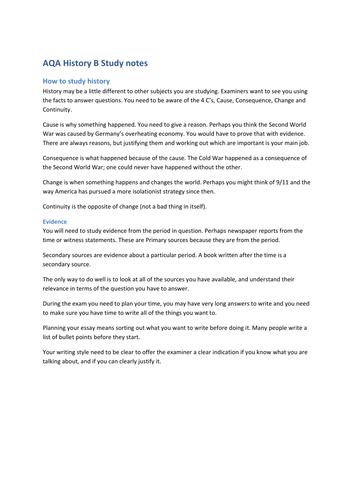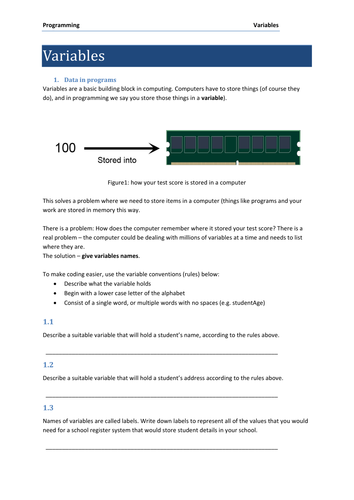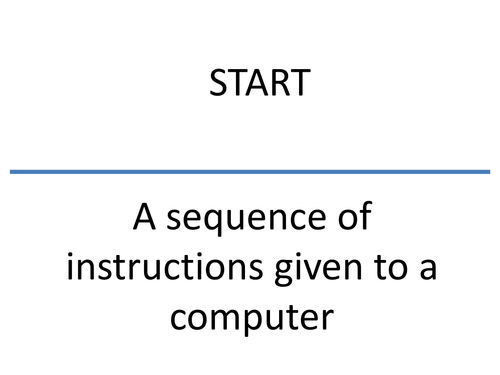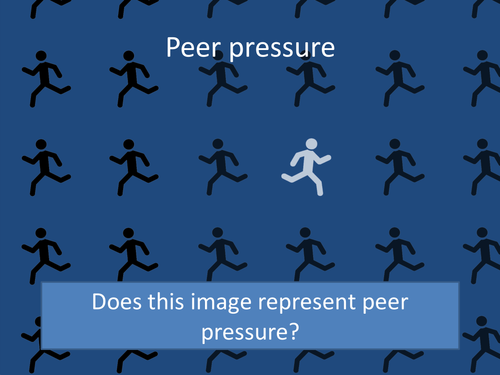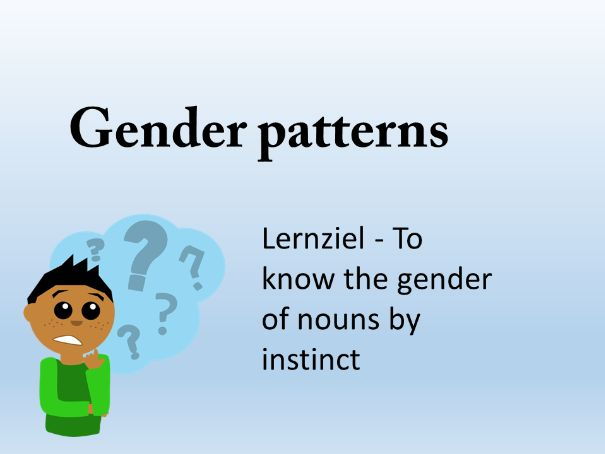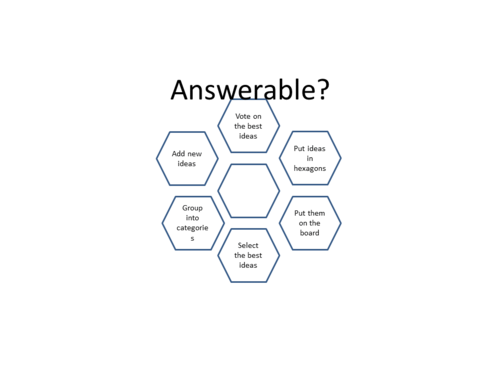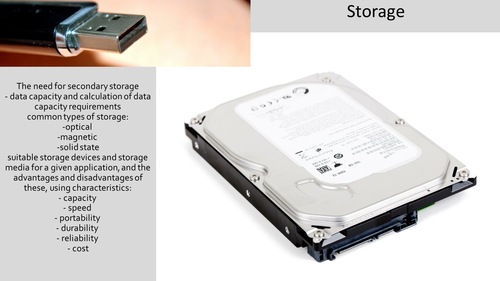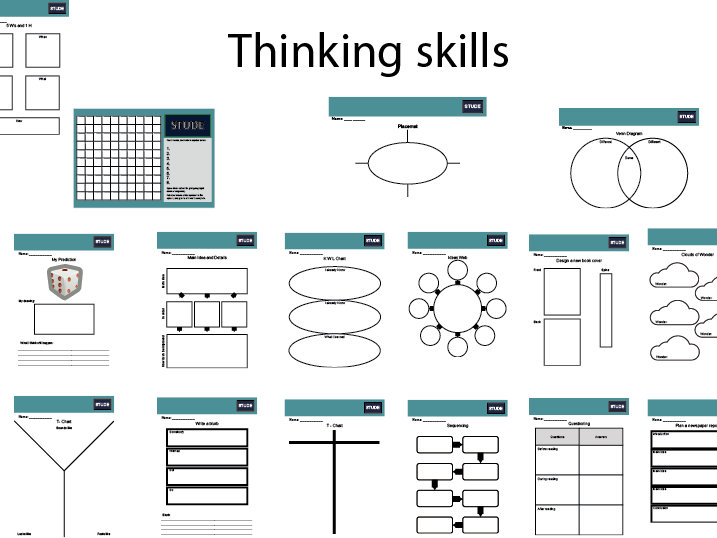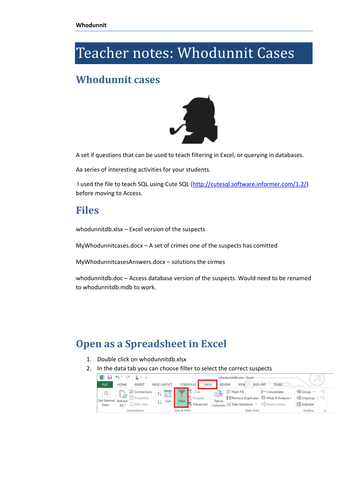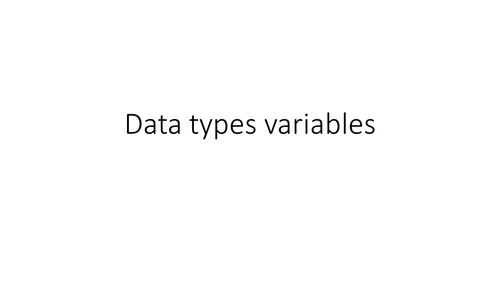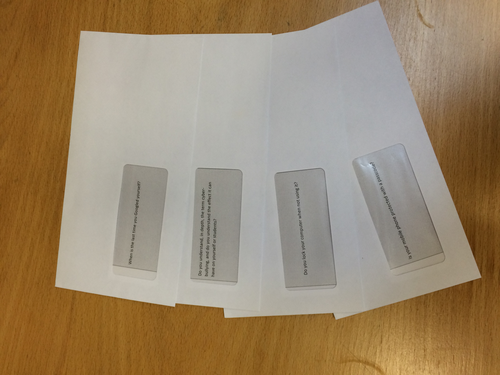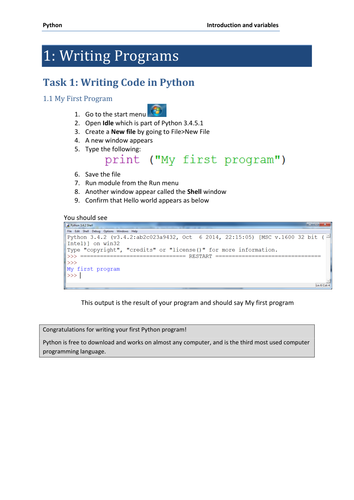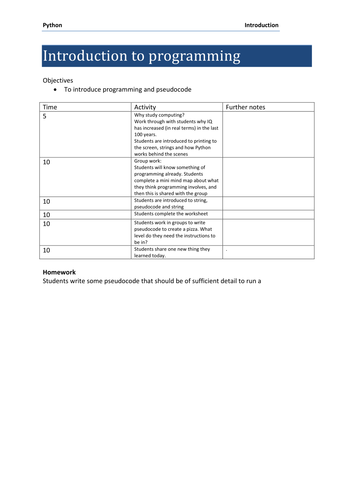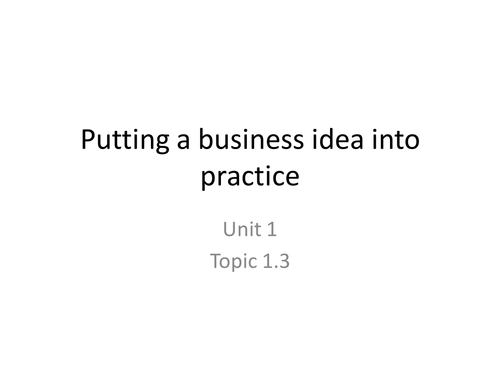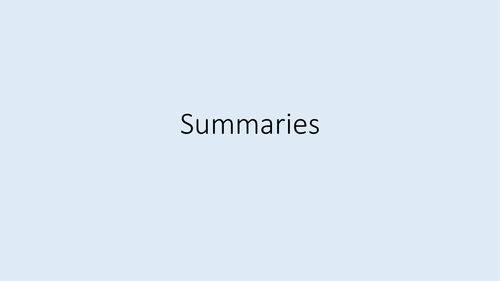
546Uploads
228k+Views
80k+Downloads
All resources

GCSE History Study notes for AQA History B: Full and Short Courses (9145)
Study notes for AQA History B: Full and Short Courses (9145).
Suitable for revision or a starting point at the beginning of the year.
Shows materials for Unit 1 only.

Binary lesson for computing KS3
Full lesson includes poster and activities including starter and worksheet

Variables theory for GCSE Computer Science
Teach students about variables. They study assignments and make sure that the variables are printed to the screen, using a variety of paradigms.
This resource is not based on any particular programming language, so is applicable for any particular language you choose.

Selection practical for GCSE Computer Science using Python
Teaches students about selection. The full lesson includes booklet and homework.
This resource uses Python version 3.4

Solutions to Bullying - the concept of peer pressure
A lesson to talk about the solutions to the problem of bullying. What does peer pressure mean?
I start this with the behavioural guys video and take it from there. The pack includes a worksheet.

Gender patterns in German
Includes a set of card in a matching activity, a set of student exercises a powerpoint presentation and all you need to teach this to students.

Nominative, accusative & dative cases in German
Overview of nominative, accusative & dative cases in German including cases charts for students to memorize and work on from home.

Storage Lesson for OCR Computer Science
Complete lesson for Storage. Designed for OCR Computer Science (9-1) J276 but is more than useful for Computer Science students studying AQA and other exam boards.
Contains a PowerPoint presentation, and two worksheets.
Contains everything the students need to know:
- the need for secondary storage
- data capacity and calculation of data capacity requirements
common types of storage:
-optical
-magnetic
-solid state
suitable storage devices and storage media for a given application, and the advantages and disadvantages of these, using characteristics:
- capacity
- speed
- portability
- durability
- reliability
- cost

GCSE Computer Science 9-1 - Legal Revision for OCR
For the AQA GCSE 9-1 OCR Specification.
Contains tasks for revision around the computing legal requirements for businesses.

KS2 Collection of scaffolding worksheets
A large collection of 16 worksheets used for scaffolding.
5ws
Clouds of wonder
Design a book cover
Ideas web
KWL chart
Main idea and details
My prediction
Place mat
Planning a newspaper report
Questioning
Sequencing
TChart
Venn diagram
Wordsearch
Write a blurb
Y chart

Note taking "how to" for sixth form students
A note taking presentation for sixth-form students.
Study based, and includes a video link for students to watch.

Database Queries and Excel filtering in KS3 Computing
A set if questions that can be used to teach filtering in Excel, or querying in databases.
A series of interesting activities for your students to teach them these fundamental concepts in computing.
I used the file to teach SQL using Cute SQL (http://cutesql.software.informer.com/1.2/) before moving to Access. Instructions provided.

Variables concept for computing (KS3 and KS4)
A great plan for variables in computing. TESPlan.docx gives a lesson plan that guides you through the following:
- VariablesTES is the main presentation to explain variables.
- Data types variables introduces data types and has an exercise for students to complete (worksheet is VariablesDataTypes
- Code Scramble has questions for off computer work related to variables
- VariablesProgrammingTask has a set of questions (not programming language dependent) for students to complete
This lesson is not dependent on a particular programming language.
It is a set of activities and a presentation to help students with this important concept in computing.

eSafety discussion task
eSafety discussion task.
Each comment has a surprising addition.
To use this use envelopes with a clear window (as in the images Envelopes.jpg and Envelopessecond.jpg show).
Students then follow the following instructions.
We are going to order the questions in the envelopes from most to least important.
Leave them in their envelopes for now
1. Do you think the question is relevant (in turn)
2. Why do you think that your question might be regarded as important (in turn)
3. Order
4. Remove from envelopes to see additional information. Does this change your mind?

Introduction to programming practical for GCSE Computer Science using Python
Introduction to programming using Python (3.4)
Suitable for GCSE level students includes worksheet tasks and homework.
This lesson covers sequence, operators and output.

Introduction to programming theory for GCSE Computer Science
Teach students about programming . They study basic strings and how computers store and manipulate data.
This resource is not based on any particular programming language, so is applicable for any particular language you choose.

Putting a business idea into practice revision for GCSE Business Studies (Edexcel 1BS0)
A full revision session for GCSE Business Studies for Edexcel.

20 GCSE computer science plenaries for OCR GCSE (9-1) J276
20 quick-fire plenaries for GCSE computing for OCR GCSE (9-1) J276.
Saves hours of work; particularly when purchased as part of the bundle GCSE computer science without the planning.
GCSE Computer Science for OCR (9-1) J276 lessons without the planning.

KS3 summaries in English writing
This complete teaching resource helps pupils develop their knowledge and understanding of summaries.
This is a short session and may need to be combined with another topic for an hour's lesson.
Students are taught how to effectively summarise their work.

